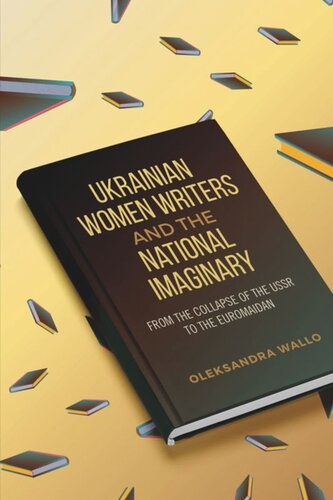

Most ebook files are in PDF format, so you can easily read them using various software such as Foxit Reader or directly on the Google Chrome browser.
Some ebook files are released by publishers in other formats such as .awz, .mobi, .epub, .fb2, etc. You may need to install specific software to read these formats on mobile/PC, such as Calibre.
Please read the tutorial at this link: https://ebookbell.com/faq
We offer FREE conversion to the popular formats you request; however, this may take some time. Therefore, right after payment, please email us, and we will try to provide the service as quickly as possible.
For some exceptional file formats or broken links (if any), please refrain from opening any disputes. Instead, email us first, and we will try to assist within a maximum of 6 hours.
EbookBell Team

4.7
16 reviewsSince the collapse of the Soviet Union, the Ukrainian literary world has not only experienced a true blossoming of women’s prose, but has also witnessed a number of female authors assume the roles of literary trendsetters and authoritative critics of their culture. In this first in-depth study of how Ukrainian women’s prose writing was able to re-emerge so powerfully after being marginalized in the Soviet era, Oleksandra Wallo examines the writings and literary careers of leading contemporary Ukrainian women authors, such as Oksana Zabuzhko, Ievheniia Kononenko, and Maria Matios. Her study shows how these women reshaped literary culture with their contributions to the development of the Ukrainian national imaginary in the wake of the Soviet state’s disintegration.
The interjection of women’s voices and perspectives into the narratives about the nation has often permitted these writers to highlight the diversity of the national picture and the complexity of the national story. Utilizing insights from postcolonial and nationalism studies, Wallo’s book theorizes the interdependence between the national imaginary and narrative plots, and scrutinizes how prominent Ukrainian women authors experimented with literary form in order to rewrite the story of women and nationhood.